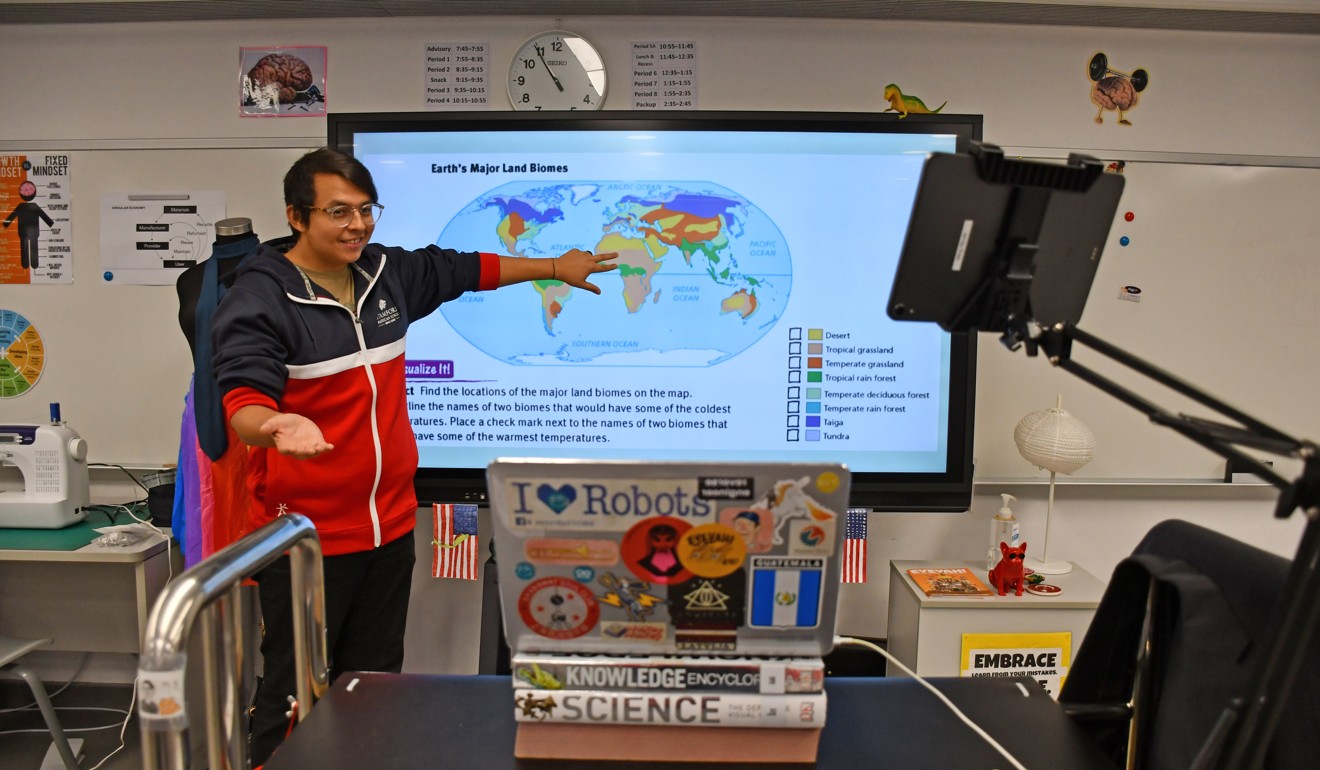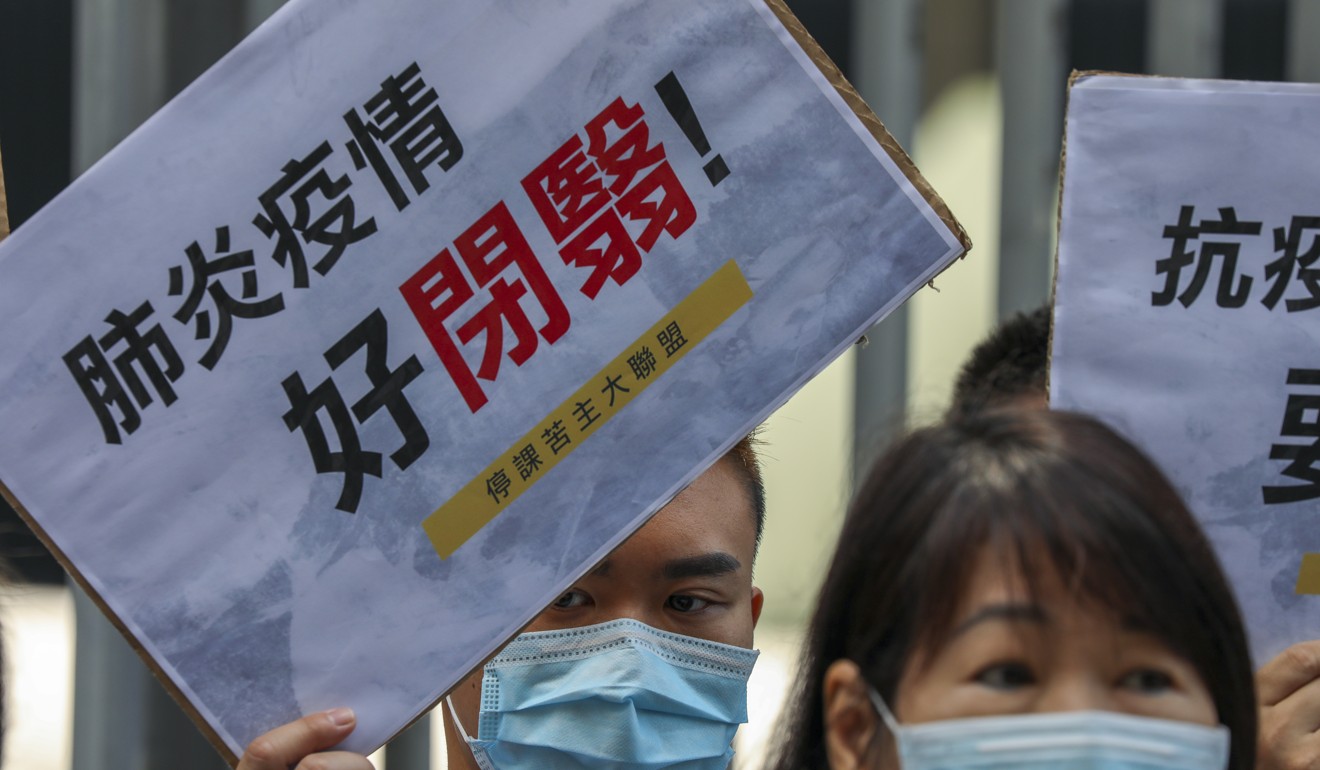
Coronavirus pandemic has upended schooling in Hong Kong – with parents bearing the brunt
- The digital divide is evident in how schools deliver e-learning, with parents anxious that their children are losing out and struggling to support them while juggling work
Schools vary in how they deliver e-learning. Although all schools try hard to reach out to students, only a few private international schools have started synchronous online classes.
Equipped with the most advanced e-learning tools, teachers in these schools broadcast content to students in real-time, enabling students to respond immediately, edit documents and share their screens. These schools maintain regular school day schedules, with even a dedicated time for physical exercise.
Other schools use virtual learning, video podcasting, online discussion forums, chat rooms and screencasts.
Less technologically advanced schools have begun sending study materials and worksheets to parents once a week or two by email, phone and even post.
The main reason for this difference is the disparity in resources: students at most international schools usually own laptops and use them in class. Teachers, too, are adept at creating online study material and developing e-assignments, although, even for them, transitioning to a full-time online mode was quite challenging.
For the rest, technical resources are not evenly accessible. Unequal access to technology has amplified pre-existing differences in wealth among families in the city. Lacking computers at home, some children use their parents’ smartphones to do homework.
Toilet is ‘safest hideout’: the families housebound by Covid-19 school closures
There is inequality in the upcoming holidays, too. While some local schools asked parents and teachers to “mentally prepare” for short summer holidays, some private international schools, which have run e-learning throughout, promised parents that schools will not extend into the summer.
Nevertheless, school leaders and teachers across Hong Kong have shown unparalleled dedication.

Parents seem to be the hardest hit group in these challenging circumstances, serving the relentless demands of children, schools and work. I am a working mother with two children. Having spent two years in a local primary school, my eight-year-old son is now in a private international school and has a full schedule of virtual lessons.
International schools face uncertainty as parents mull pulling children
Parents from both local and international schools express anguish about the loss of autonomy and share concerns about the quality of online education. “People seem to far underestimate the psychological risk that comes with the physical virus,” a mother and educator told me, adding that she no longer enjoys her home “independence”.
“Home-schooling is a full-time job. How can I work from home as well?” is an oft-heard refrain. Lacking teaching and technological skills, some parents worry they cannot offer their children sufficient help. Others characterise themselves as “exhausted”, “annoyed”, “lost”, “burdened”, “confused” and “frustrated”.

Typically, Hong Kong parents value academic excellence and prioritise their children’s education. Many parents are anxious about losing this advantage to those whose children go to schools which offer better online experiences. “I feel like my child is getting second-hand learning while others use fancy technologies,” said a mother whose children’s school sends homework by email.
Some parents reported that their children would not take online schooling seriously; some were distracted by having other electronic devices or kitchens next to them. An Education University survey found over 80 per cent of primary school parents said their children had trouble learning at home. Enforcing rules to avoid partial participation in e-learning, troubleshooting with phone calls and staying extra silent at home were reported as extremely difficult parenting moments.
Parents are also concerned about children spending too much time on screens. The Education University survey found nearly 40 per cent of primary students spend an alarming four hours a day on screens.
Hong Kong parents also vent about the high tuition fees they still have to pay. “Home-schooling is acceptable if we do not have to pay the full private school fees,” a parent, whose children go to one of the most expensive schools in Hong Kong, remarked. Some have asked for refunds from schools and bus companies.

However, often parents do express appreciation for the long hours school leadership and teachers work to prepare teaching material.
Some of my friends have created learning communities for children in the neighbourhood. Universities have been generously supporting local schools, teachers and parents, sharing know-how on e-learning.
The coronavirus has once again highlighted both the good and ugly side of Hong Kong. Let’s hope the heightened sense of solidarity that shared suffering brings will lead to healing and justice in Hong Kong.
Nutsa Kobakhidze is a mother of two young children, and assistant professor in the Faculty of Education at the University of Hong Kong

